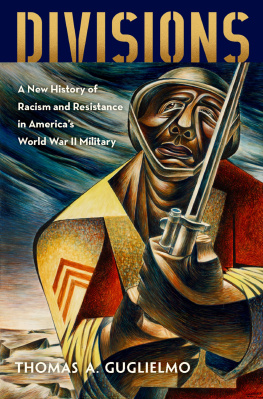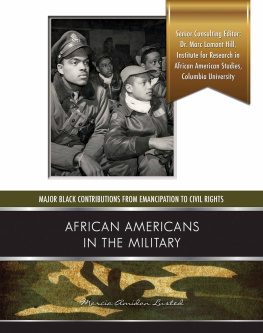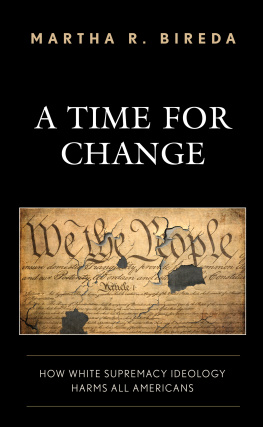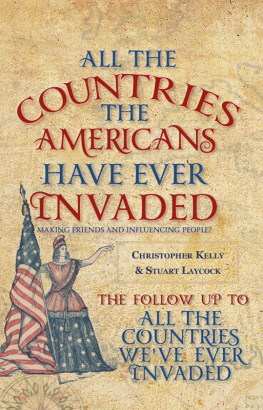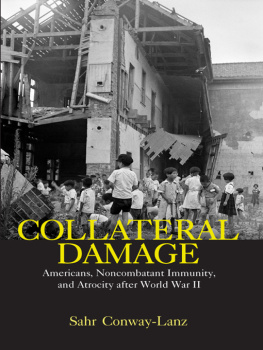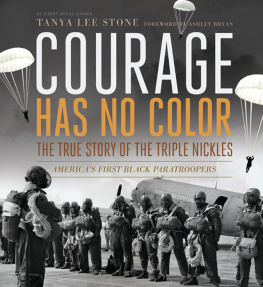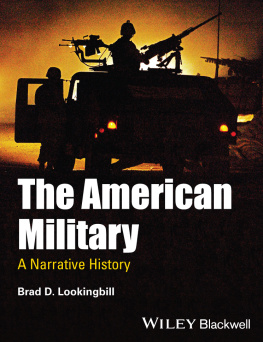Divisions

Oxford University Press is a department of the University of Oxford. It furthers the Universitys objective of excellence in research, scholarship, and education by publishing worldwide. Oxford is a registered trade mark of Oxford University Press in the UK and certain other countries.
Published in the United States of America by Oxford University Press
198 Madison Avenue, New York, NY 10016, United States of America.
Oxford University Press 2021
All rights reserved. No part of this publication may be reproduced, stored in a retrieval system, or transmitted, in any form or by any means, without the prior permission in writing of Oxford University Press, or as expressly permitted by law, by license, or under terms agreed with the appropriate reproduction rights organization. Inquiries concerning reproduction outside the scope of the above should be sent to the Rights Department, Oxford University Press, at the address above.
You must not circulate this work in any other form and you must impose this same condition on any acquirer.
Library of Congress Cataloging-in-Publication Data
Names: Guglielmo, Thomas A., author.
Title: Divisions : a new history of racism and resistance in Americas
World War II military / Thomas A. Guglielmo.
Other titles: New history of racism and resistance in Americas World War II military
Description: New York, NY : Oxford University Press, [2021] | Includes index.
Identifiers: LCCN 2021016387 (print) | LCCN 2021016388 (ebook) |
ISBN 9780195342659 (hardback) | ISBN 9780190939908 (epub) |
ISBN 9780190940355
Subjects: LCSH: World War, 19391945Participation, African American. |
Discrimination in the militaryUnited StatesHistory20th century. |
World War, 19391945Social aspectsUnited States. | United
StatesArmed ForcesAfrican AmericansHistory20th century. | World
War, 19391945Participation, Hispanic American. | World War,
19391945Participation, Indian. | World War, 19391945Participation,
Asian American. | United StatesArmed ForcesIndianHistory20th
century. | United StatesArmed ForcesHispanic
AmericansHistory20th century. | United StatesArmed Forces
Asian AmericansHistory20th century.
Classification: LCC D810.N4 G84 2021 (print) |
LCC D810.N4 (ebook) | DDC 940.54/03dc23
LC record available at https://lccn.loc.gov/2021016387
LC ebook record available at https://lccn.loc.gov/2021016388
DOI: 10.1093/oso/9780195342659.001.0001
For Nikki, Luca, and Miya
Contents
Far too long in the making, this book might not have seen the light of day but for the support of so many generous and good people. I thank them here with great pleasure.
For help tracking down archival and other source material, many thanks to the late Walter Hill, Ken Schlesinger, Eric Van Slander, and Alexis Hill at the National Archives at College Park, Robert Glass at the National Archives at San Francisco, Guy Hall at the National Archives at Atlanta, Barbara Rust at the National Archives at Fort Worth, Gail Farr at the National Archives at Philadelphia, Richard McCulley at the National Archives at Washington, DC, Mary Brown at the Center for Migration Studies Archive, Joellen Elbashir at the Moorland-Spingarn Research Center at Howard University, Laura Mills at the Roosevelt University Archives, Savannah Wood at the Afro American Newspapers Archives, and the Inter-Library Loan staff at the Gelman Library at George Washington University. I also offer my thanks to Lizzie Cammarata, Jacqui Olson, and Gillet Rosenblith for research help and to Kimberly Probolus and Matthew Riemer for help with images.
For time to think and write, I thank Stanford Universitys Research Institute of Comparative Studies in Race and Ethnicity, Harvard Universitys Charles Warren Center, and George Washingtons Columbian College Facilitating Fund and Deans Research Chair.
Over the years, Ive had the privilege and pleasure to present my work at a number of places where audience members challenged and encouraged me and, ultimately, made this a better book. For the opportunity to share pieces of this project, thanks to the cole des hautes tudes en sciences sociales in Paris, the Institut dhistoire du temps prsent at Universit Paris 8, the Institute for Research on Race and Public Policy at the University of Illinois at Chicago, the DC-Area African American Studies Works-in-Progress Seminar, the Smithsonian Institution Contemporary History Colloquium, the Potomac Center for the Study of Modernity, Harvard University, Stanford University, Bard College, the University of Delaware, New York University, the Berkshire Conference of Women Historians, the American Historical Association, the American Studies Association, the Association of Asian American Studies, the Council of European Studies, and the Society for Historians of American Foreign Relations.
Many colleagues and friends fielded questions, sent me sources, shared their own work, talked through ideas, invited me to speak, read chapter drafts, and encouraged and inspired me. Many thanks to Amin Ahmad, Eric Arnesen, Beth Bailey, Rick Baldoz, Nemata Blyden, Eduardo Bonilla-Silva, Mark Brilliant, Zo Burkholder, Al Camarillo, Chris Capozzola, Patrick Chung, Daniel Coffeen, Liz Cohen, Matthew Countryman, Joe Crespino, Emilye Crosby, Silvia lvarez Curbelo, Rachel Devlin, Jay Driskell, Jeff Edelman, Tyrone Forman, Brett Gadsden, Mike Galland, Ed Gitre, Dave Gutierrez, Melanie Haimes-Bartolf, Evelyn Brooks Higginbotham, Jennifer Ho, Bob Jefferson, Derrick Jones, Peniel Joseph, Andrew Kahrl, Katrina Quisumbing King, Peter Kolchin, Kip Kosek, Scott Kurashige, Dan Lee, Adriane Lentz-Smith, Amanda Lewis, Robert Lilly, Mara Loveman, Malinda Maynor Lowery, Ken Mack, Daryl Maeda, Laura McEnaney, James McNaughton, Chris Mihm, Natalia Molina, Kimberly Morgan, Kevin Mumford, Paul Murray, Jen Nash, Christopher Arris Oakley, Bibi Obler, Franklin Odo, Chris Parker, Pauline Peretz, Khary Polk, Russell Rickford, Dave Roediger, Tom Romero, Lucy Salyer, Josh Shannon, Jonathan Struthers, Rich Thomas, Steve Weissman, Scott Wong, Jeff Yamashita, James Zarsadiaz, and Susan Zeiger. For an expert reading of an early, partial draft of the manuscript and for her encouragement, many thanks to Susan Whitlock. For their support and fellowship, I am indebted to my students and colleagues in George Washington Universitys Department of American Studies, including those who were kind enough to read material: Colin Anderson, Sara Awartani, Francesco De Salvatore, Melani McAlister, Dara Orenstein, and Suleiman Osman.
Two friends deserve special recognition. Years ago, as I struggled mightily with this project, Cybelle Fox, in an act of signal generosity, read everything Id written to that point and gave me invaluable feedback and encouragement, probably more encouragement than was warranted by the mess of half-baked writing she had to contend with. Similarly, an old friend from graduate school, Nathan Connolly, read a few draft chapters and, most important, expressed faith in me and this project. Given my great respect for him, it meant more than he knows, and it encouraged me to keep plugging away, believing again in this books broader purpose. For throwing me a lifeline of sorts when I really needed it, heartfelt thanks to Cybelle and Nathan.
For putting into present-day practice some of the ideas in this book, I thank fellow members of the Race, Class, and Equity Group at the Capitol Hill Cluster School, including Marisol Bello, Chris Blanchard, Lisa Brooks, Ramona Burton, Asheley McBride, and Patricia Odom.

